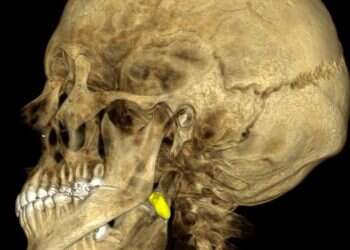Many months into the Gaza war, a staggering 68% of Israeli women report a decline in their mental state, with many citing new or exacerbated medical issues. These findings emerge from a survey conducted by the Briah Foundation for women's health advancement, encompassing both women evacuated from their homes and those who were not.
The survey, carried out in May-June, approximately eight months after the outbreak of the war, revealed that 30% of evacuated women require psychological assistance. Among the evacuees, 17% reported a deterioration in their physical condition, compared to 11% of non-evacuees. Regarding mental health, 37% of evacuees reported a worsening state, versus 19% of non-evacuees.
An initial survey conducted a month after the Oct. 7 Hamas massacre showed that evacuees from the south reported higher rates of deterioration compared to those from the north. However, eight months into the war, evacuees from both regions reported similar levels of decline. Some 35% of evacuees and 22% of all women surveyed reported health issues that either worsened or appeared for the first time since the onslaught.
Of the problems that worsened or emerged, 22% were psychological, 22% were hormonal and metabolic changes, primarily related to menstrual cycles, and 17% reported musculoskeletal pain. Additional issues women reported as new or worsening included headaches, skin problems, and sleep disturbances.
Further findings showed an increase in medication use, including sleep aids (a 132% jump among evacuees, compared to 58% among non-evacuees), antidepressants and anxiety medications (61% vs 26%), and sedatives (42% vs 34%).

Photo: Eyal Margolin/Genie
Family commitments
The survey indicates that women during wartime tend to neglect their own health issues and preventive check-ups. Women forewent essential examinations such as dental treatments (59% of evacuees, 40% of non-evacuees), breast examinations or mammograms (48% of evacuees, 38% of non-evacuees), and more.
What reasons made it difficult for women to maintain their health? 56% stated they had no time to deal with their health matters, and 38% said family commitments left them no time. Additional reasons included unfamiliarity with doctors in their new environment (56%) and lack of orientation in the area to which they were evacuated (38%).
The survey included 1,059 adult women, 50% of whom were evacuees from the south and north. The findings were presented at the Association of Public Health Physicians conference. The researchers concluded, "The state of war and evacuation from home have a significant and ongoing impact on the mental and physical health of women in Israel. The impact is more severe for women who were evacuated from their homes. There is a need for special attention to the needs of women and special populations."
Dr. Galit Neufeld Kroszynski from Tel Aviv University and the Briah Foundation, who conducted the research with her colleagues Nehama HaCohen and Nehora Alterman, explained the choice to study women's health, "From the literature, we know that women take on the responsibility for the health of children and partners, and they often remain behind in everything related to their own health.
"During the war, several studies were published that did not address the gender element, and we wanted to examine what was happening with women. Originally we planned to survey only evacuated women, but we realized that the implications are for the entire female population, and as time passes – the damage becomes greater.
"We also saw a certain increase in the lack of examinations with worsening conditions among evacuated women. We especially identified a decrease among mothers of young children, under 12. The interesting thing we discovered was that when women were evacuated to large cities with a wider range of medical services, some experienced improved access to examinations, appointments, and specialist doctors. There was a big gap between those evacuated to the Dead Sea compared to those evacuated to Tel Aviv," Neufeld Kroszynski said.
Migraines, stress, and difficulty sleeping
One of the survey respondents reported that she was evacuated with her elderly parents and had to care for them and her children, so she did not have time to deal with her own health issues. Another evacuee, who has a chronic illness and took medication by infusion, said that in the kibbutz she would regularly receive the medications, and now she has to obtain them herself.
Another evacuee described that in Eilat, they were referred between clinics and it was unclear who was treating them, until one of the doctors took care of them. Other women reported changes in their menstrual cycle, headaches and migraines, high stress and difficulty sleeping, back pain due to crowding and uncomfortable sleeping arrangements, repeated viral infections during their stay at the hotel, and more.
According to Neufeld Kroszynski, "We must start paying attention to what is happening to women and prepare a long-term health rehabilitation plan for them. See which tests they didn't perform, what new problems arose, and make it possible for them to get early appointments. There should be a proactive approach from the system to women, before the situation becomes more severe. Even when the evacuees start returning home, it's important that there be follow-up."
Dr. Sapir Bitton, a psychiatry resident at Soroka Hospital and research partner, lives in Kibbutz Erez and was also evacuated from her home.
"All the weeks at the beginning of the war were turbulent," she said. "There were casualties from my immediate surroundings and our community was evacuated to Mitzpe Ramon. I had to manage the house and the evacuation and two small children and a partner who was in the standby unit. The research data didn't surprise me, because I feel it myself. I didn't do tests either. The need to create tailored responses for women and trauma-informed care – this is one of my life missions right now. I'm working to promote and improve the health of evacuated women. Improvement and creating responses now will prevent much morbidity in the future. I feel that we are facing a tsunami, and if we don't manage to provide the response now – it will be in all areas."




